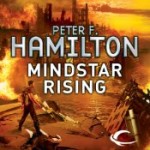
 The SFFaudio Podcast #205 – Jesse, Tamahome, and Jenny talk about NEW RELEASES and RECENT ARRIVALS.
The SFFaudio Podcast #205 – Jesse, Tamahome, and Jenny talk about NEW RELEASES and RECENT ARRIVALS.
Talked about on today’s show:
Oz Reimagined, Orson Scott Card, John Joseph Adams, Marissa Vu, The Mad Scientist’s Guide To World Domination, Daniel H. Wilson, Alan Dean Foster, Seanan McGuire, Scott loves lists!!, Microcosmic God by Theodore Sturgeon, the cruel god, about Science Fiction, mad scientists, steampunk, urban fantasy, superheroes, supervillians, Lex Luthor, Infinivox, Steampunk Specs, Cherie Preist, Cat Rambo, Margaret Ronald, Sean McMullen, do stage actors make the best narrators?, themed anthologies, Extinction Point (Book 1) by Paul Anthony Jones, Emily Beresford, Chuck Wendig, Mockingbird, Blackbird, post-apocalyptic novels, Swan Song by Robert McCammon, Six Heirs (The Secret of Ji) by Pierre Grimbert, “Les editions Mnemos”, Bolinda Audio, the distorting effect of podcasts, are audiobooks taking over reading?, Luke Burrage, busy lifestyles, Gone Girl, Beautiful Ruins, archaeologist werewolf vampire oracles, “being a librarian is awesome”, is being a paramedic fun? Or is it full of paperwork?, Bones, forensic anthropology, Kathy Reichs, sorry no time traveling, high fantasy (aka epic fantasy), The Hobbit, The Lord Of The Rings, The Worm Ouroboros, Neil Gaiman, the Neverwhere BBC audio drama, the TV show, the audiobook, Neverwhere as an allegory of homelessness, urban fantasy, Neil Gaiman can do no wrong, “I accept that”, Harry Potter is not high fantasy, Tolkienesque, George R.R. Martin, Harlan Ellison, Deadhouse Gates (A Tale of the Malazan Book of the Fallen) by Steven Erikson, Malazan is hot on GoodReads, Terpkristin, Mongoliad Book 3, Neal Stephenson, Greg Bear, Mark Teppo, Nicole Galland, Erik Bear, Joseph Brassey, Copper Moo, comic crossovers, The Beast of Calatrava (A Foreworld SideQuest, Mongoliad) by Mark Teppo, Area 51: The Truth by Bob Mayer, Casey, Zero Dark Thirty, torturefest, Popular Science, Popular Mechanics, Among Others by Jo Walton, Between Two Thorns (The Split Worlds #1) by Emma Newman, Cornish accents please, Jumper by Steven Gould, Jumper vs. Looper, Reflex by Steven Gould, The Stars My Destination, teleportation, Impulse by Steven Gould, snowboarding, Sarah vs. Bryce, Angelopolis (Angelology #2) by Danielle Trussoni, Penguin Audio, Fabergé eggs, The Da Vinci Code, nightmare car trips, nightmare cruises, Pride And Prejudice And Zombies, stolkholm syndrome, Seth Grahame-Smith, zombies, Redemption Alley (Jill Kismet Series) by Lilith Saintcrow, The Free Lunch by Spider Robinson, Spider Robinson is the humane hippie Heinleinian, theme park fantasy, the Callahan’s series, fascistic junky pro-war movies are ameliorated by reading Robinson, Heinlein and the sexual revolution, Michael Flynn, Falling Stars (Firestar Saga #4) by Michael Flynn, Footfall, the Russian meteor, what would have happened if it had happened over Ohio, instead of Siberia, Dan Carlin, Neil deGrasse Tyson, suspension of habeas corpus, an external vs an autoimmune threat, Farside by Ben Bova, Stefan Rudnicki, soap opera or space opera?, archaic characters, vintage SF, Jack Williamson, Omni magazine, Aftermath (Supernova Alpha Series #1) by Charles Sheffield, Black Feathers (The Black Dawn #1) by Joseph D’Lacey, Simon Vance, futuristic fantasy?, apocalyptic fantasy?, History Vikings, Jenny is 1/4 viking, Steen Hansen, the quasi historical saga dude, The Tudors, The Borgias, The Thrall’s Tale by Judith Lindbergh, Ireland, Triggers by Robert J. Sawyer, “real science fiction”, technothriller, Red Mars Blues, Morlock Night by K.W. Jeter, Connie Willis, steampunk, Tim Powers, The Age Atomic (sequel to Empire State) by Adam Christopher, Phil Gigante, Seven Wonders, superhero noir, intricately beautiful, The Stainless Steel Rat, Phil Gigante is the new narrator of Galactic Pot-Healer, Julie Davis, Robert Sheckley, suicidal characters, a comedic version of Neuromancer with the Wintermute role being played by Cthulhu, Tor, Imager’s Battalion by L.E. Modesitt, Jr., A Natural History Of Dragons: A Memoir by Lady Trent by Marie Brennan, Naomi Novik, Trinity Rising by Elspeth Cooper, The Fractal Prince by Hannu Rajaniemi, Finland, Tam books vs. Jenny books, The Hermetic Millennia by John C. Wright, The Forever War by Joe Haldeman, The Accidental Time Machine by Joe Haldeman, 500 Essential Cult Books: The Ultimate Guide by Gina McKinnon, 500 Essential Cult Movies: The Ultimate Guide by Jennifer Eiss, Sister Mine by Nalo Hopkinson, Dreamscape Media, Toronto, conjoined twins, Brown Girl In The Ring, Midnight Robber, mojo vs. voodoo, Karen Lord, Cat Valente style fantasy, The White Woman On The Green Bicycle, Inherit The Stars by James P. Hogan, “a shimmering arpeggio”, Downpour’s new pricing is $12.99 per month, DRM FREE audiobooks are awesome, Identity Theft by Robert J. Sawyer, LibriVox, Gutenberg.org, Robert E. Howard’s Conan, The Devil In Iron by Robert E. Howard, The Hour Of The Dragon by Robert E. Howard, Mark Nelson, Bill Hollweg, what would a Robert J. Sawyer Conan story look like?
Posted by Jesse Willis









